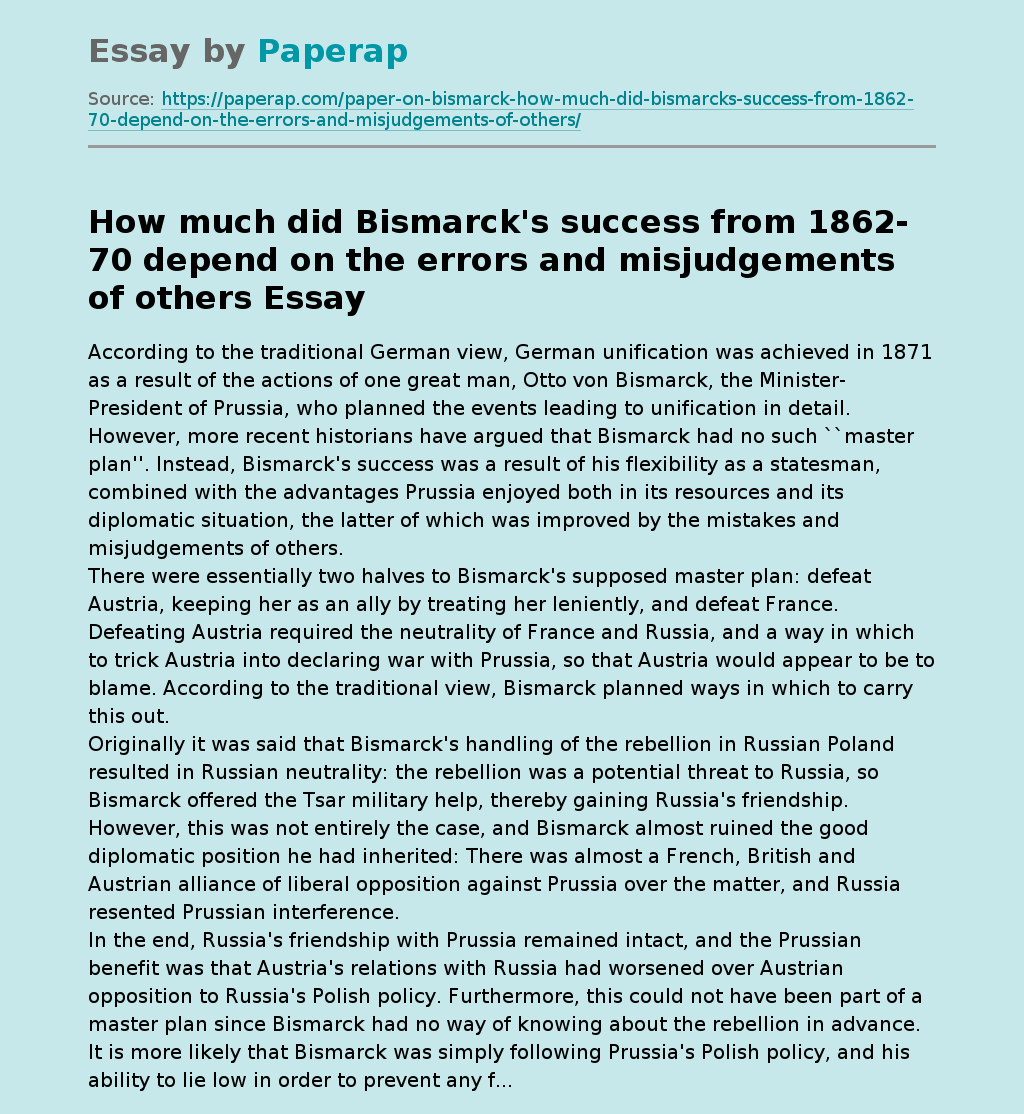Bismarck's Success & Others' Misjudgements
According to the traditional German view, German unification was achieved in 1871 as a result of the actions of one great man, Otto von Bismarck, the Minister-President of Prussia, who planned the events leading to unification in detail. However, more recent historians have argued that Bismarck had no such “master plan”. Instead, Bismarck’s success was a result of his flexibility as a statesman, combined with the advantages Prussia enjoyed both in its resources and its diplomatic situation, the latter of which was improved by the mistakes and misjudgements of others.
There were essentially two halves to Bismarck’s supposed master plan: defeat Austria, keeping her as an ally by treating her leniently, and defeat France. Defeating Austria required the neutrality of France and Russia, and a way in which to trick Austria into declaring war with Prussia, so that Austria would appear to be to blame. According to the traditional view, Bismarck planned ways in which to carry this out.
Originally it was said that Bismarck’s handling of the rebellion in Russian Poland resulted in Russian neutrality: the rebellion was a potential threat to Russia, so Bismarck offered the Tsar military help, thereby gaining Russia’s friendship.
However, this was not entirely the case, and Bismarck almost ruined the good diplomatic position he had inherited: There was almost a French, British and Austrian alliance of liberal opposition against Prussia over the matter, and Russia resented Prussian interference.
In the end, Russia’s friendship with Prussia remained intact, and the Prussian benefit was that Austria’s relations with Russia had worsened over Austrian opposition to Russia’s Polish policy.
Furthermore, this could not have been part of a master plan since Bismarck had no way of knowing about the rebellion in advance. It is more likely that Bismarck was simply following Prussia’s Polish policy, and his ability to lie low in order to prevent any f…
Bismarck's Success & Others' Misjudgements. (2019, Apr 20). Retrieved from https://paperap.com/paper-on-bismarck-how-much-did-bismarcks-success-from-1862-70-depend-on-the-errors-and-misjudgements-of-others/

